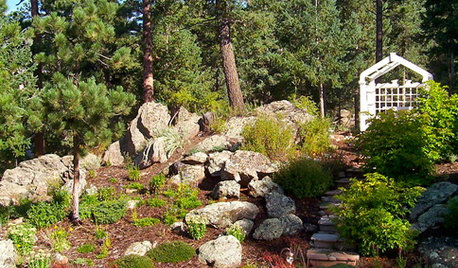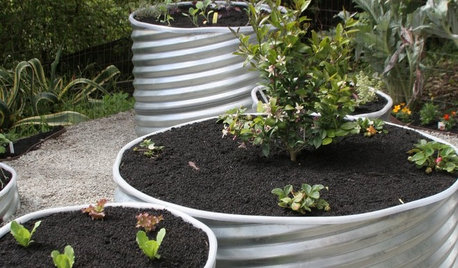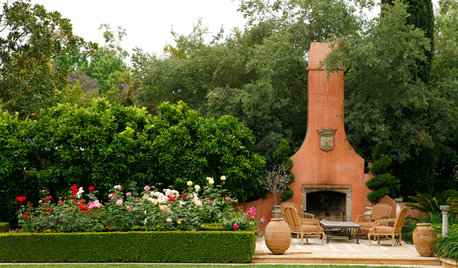Making soil more acidic
cymraes
14 years ago
Related Stories

GARDENING GUIDESHave Acidic Soil in Your Yard? Learn to Love Gardening Anyway
Look to acid-loving plants, like conifers and rhododendrons, to help your low-pH garden thrive
Full Story
GARDENING GUIDESHow to Stop Worrying and Start Loving Clay Soil
Clay has many more benefits than you might imagine
Full Story
GARDENING GUIDESHow to Pick a Mulch — and Why Your Soil Wants It
There's more to topdressing than shredded wood. Learn about mulch types, costs and design considerations here
Full Story
GARDENING GUIDESHouzz TV: Make a Worm Bin for Rich Soil and Happy Plants
A worm-powered compost bin that can fit under a sink turns food scraps into a powerful amendment for your garden. Here’s how to make one
Full Story
GARDENING GUIDESGrow a Beautiful Garden in Alkaline Soil
Got alkaline soil? Learn how to manage it and the many beautiful plants that will thrive in this ‘sweet’ soil
Full Story
GARDENING GUIDESGardening Solutions for Heavy Clay Soils
What’s a gardener to do with soil that’s easily compacted and has poor drainage? Find out here
Full Story
FARM YOUR YARDHow to Get Good Soil for Your Edible Garden
The nutrients in your soil feed the plants that feed you. Here are tips on getting it right — just in time for planting season
Full Story
GARDENING GUIDESGet the Dirt on Your Garden’s Soil
Understand how your soil supports your plants so you can ensure your garden’s success
Full Story
CONTAINER GARDENSContainer Gardening Basics: The Dirt on Soil
Learn the types of potting soil available and the best mixes to help your containers thrive
Full Story
LANDSCAPE DESIGNMake Your Roses Even More Beautiful With These Companion Plants
Nourish your rosebushes and create a visual feast with these 7 classic and unexpected plant pairings
Full StoryMore Discussions







greenwood85
idaho_gardener
Related Professionals
Canton Landscape Architects & Landscape Designers · Owings Mills Landscape Architects & Landscape Designers · Brooklyn Park Landscape Contractors · Eureka Landscape Contractors · Goodlettsville Landscape Contractors · Kearny Landscape Contractors · South Farmingdale Landscape Contractors · West Chicago Landscape Contractors · Elkridge Decks, Patios & Outdoor Enclosures · Estero Decks, Patios & Outdoor Enclosures · Gaithersburg Decks, Patios & Outdoor Enclosures · Kissimmee Decks, Patios & Outdoor Enclosures · Lacey Decks, Patios & Outdoor Enclosures · Palmetto Decks, Patios & Outdoor Enclosures · Eustis Decks, Patios & Outdoor Enclosuresgardengal48 (PNW Z8/9)
rj_hythloday
Kimmsr
Dan _Staley (5b Sunset 2B AHS 7)
gargwarb
bug_girl
rj_hythloday
Kimmsr
gargwarb
greengardener07
dirtydan
idaho_gardener
Lloyd
Xtal in Central TX, zone 8b
Cat
Xtal in Central TX, zone 8b
coppice